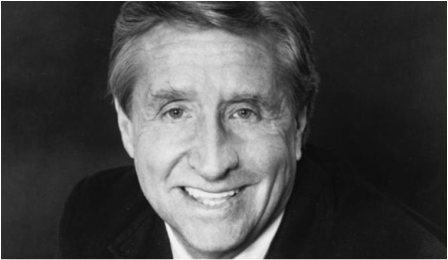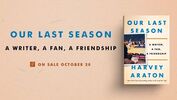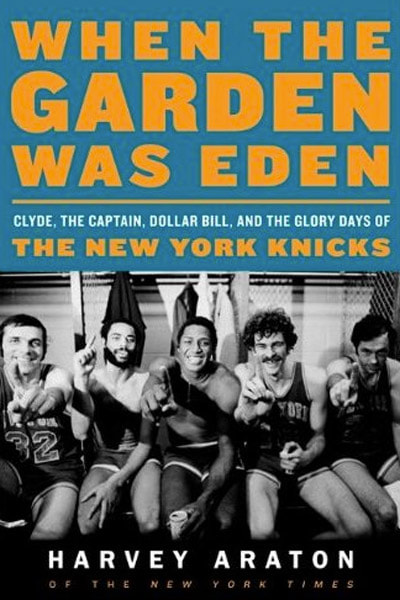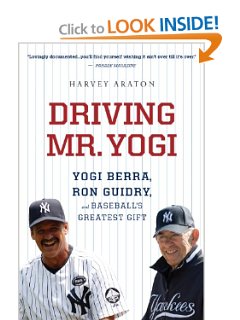
Gordon (Scotty) Stirling, who had a long career in professional sports and especially in the NBA, died Wednesday at 86 in Sacramento. May he rest he in peace. He had little during the 15 months he served as general manager of the Knicks.
Stirling succeeded Dave DeBusschere at the position in 1986, a particularly turbulent time around Madison Square Garden, as an embattled Hubie Brown fought to hang on as coach, as the young Patrick Ewing struggled to find his footing in a chaotic organization and as everyone wondered what the hell was going on with the rehabilitating star, Bernard King.
A devastating knee injury at the tail end of an already lost 1984-85 season had sent King into virtual seclusion as he took on the challenge of a comeback from severe ligament damage -- in those days pretty much a career kiss of death. No one in the media knew what was going on with King because the Knicks didn't seem to know much either. It was Stirling's most vexing issue -- how to reconstruct a team without knowing how its most dynamic player was faring in rehab.
As an insurance policy at the small forward position, Stirling did a sensible thing. He drafted the future slam-dunk champion Kenny (Sky) Walker in the first round of the '86 draft. Pressed by reporters that night on the future of King, as he had been for months on end, an exasperated Stirling snapped, "I hear he's up at Upsala working out. Go see for yourself."
Filip Bondy and I were NBA reporters in those days at the Daily News. We decided to take Stirling's advice.
I lived in Brooklyn Heights and Bondy in the Bronx and we agreed to meet early at Upsala, a small college, now defunct, in East Orange, N.J. Our original plan was to get there before King and to hide somewhere in the gym where we could spy on his workout.
Workaholic that he was, King was already on court, along with a trainer, when we arrived. Our view through a window from outside was not great but it was better than nothing. At one point, King seemed to become aware that someone was watching. He turned and stared at the window from the far side of the court. We ducked into the bushes, and waited. King didn't. He walked out a side door of the building and around to the front. Crouching, we heard a familiar voice from behind.
"What the hell do you guys think you're doing?" King said.
We told him the truth -- we had come to see him work out on Stirling's advice.
King scowled. "Fuck Scotty," he said.
Heading for the front door of the gym, he stopped and turned back to us. King was no fool. Knowing the Knicks had drafted Walker, potentially his replacement, he realized he had a perfect opportunity to send a message to the Knicks without having to deal with them.
"Want to come in and watch me work out?" he said.
We told him that's what we'd come for. In we went to watch King do a series of drills, play one-on-one with a muscular Upsala player and bury a fair share of trademark turnaround jumpers from the baseline.
"How'd I look?" he said, sitting down for a post-workout interview.
We told him he had looked really good and meant it. Not that we were medical experts, but he didn't seem to be holding back, or limping. He wasn't close to playing in a game, though. Perfectionist that he was, King's goal was not to just get back to the NBA; it was to regain all-star status, which he eventually did, except not in New York.
King didn't suit up again at with the Knicks until the final six games of the following season -- and by then Ewing was injured, shut down. They never played together. Another year of bad basketball led to the dismissal of Stirling and the hiring of a new GM-coach tandem in Al Bianchi and Rick Pitino, which, after some early success, would bring more dysfunction.
With his trap pressing defenses, Pitino couldn't envision any future with King and his rebuilt knee. The Knicks let him walk after those six games. And when he was back to where he could again dominate a game, King returned to drop 49 points on the Knicks one night at the Garden while the fans howled for Bianchi's head, chanting "Al Must Go." Soon Bianchi was gone, too, replaced by Dave Checketts on the seemingly endless conga line of Knicks executives.
As for our King exclusive at Upsala, a giddy Bondy and I thought it was destined to be a major Daily News story -- until we got back to the office to discover the editors already planning the next day's back page: Len Bias, projected as the next great Celtic in Boston, had died after celebrating being the second pick of the draft by using cocaine.
You can't plan the news. You can relish the memories. Many years later, I returned to what had been the Upsala gym -- and now belongs to a high school, East Orange Campus -- to watch my son play a junior varsity game. I told a friend about what had happened the last time I had sat in that building, mentioning how Stirling had inspired a scoop.
"That's right," my friend said. "I forgot he was the Knicks' GM."
So here's to you, Scotty Stirling. Gone, but not forgotten.



 RSS Feed
RSS Feed
